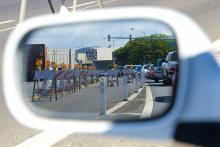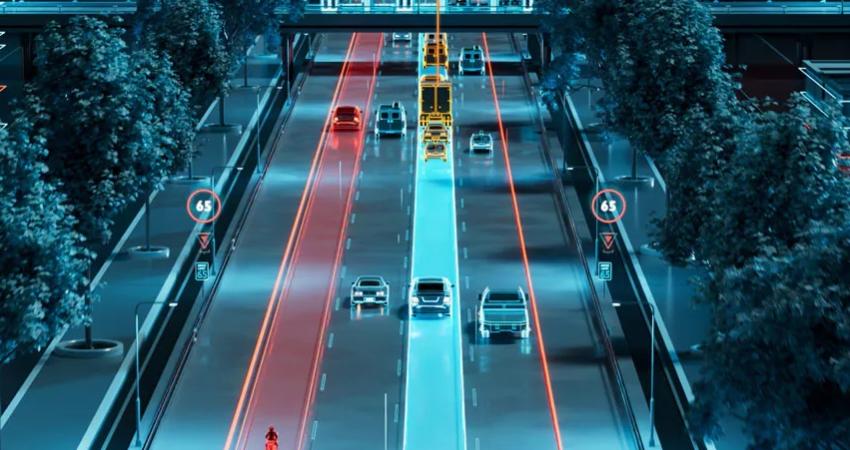Robert Poole, co-founder of the Reason Foundation, has worked on transportation policy for more than three decades and is an influential voice on tolling, congestion pricing and infrastructure finance.
Writing in his monthly newsletter (link http://reason.org/news/show/surface-transportation-news-131) he voices his scepticism of vehicle to vehicle (V2V) and vehicle-to-infrastructure (V2I) technology which may one day allow cars to communicate with each other and with traffic infrastructure to avoid colli
Robert Poole, co-founder of the Reason Foundation, has worked on transportation policy for more than three decades and is an influential voice on tolling, congestion pricing and infrastructure finance.
Writing in his monthly newsletter (link http://reason.org/news/show/surface-transportation-news-131) he voices his scepticism of vehicle to vehicle (V2V) and vehicle-to-infrastructure (V2I) technology which may one day allow cars to communicate with each other and with traffic infrastructure to avoid collisions.
Poole says: “…..if we focus just on fatal crashes, we can estimate that more than half are due to driver problems that V2V would not address.”
“Full benefits would be realised only once the entire fleet is equipped, but we know that it takes about 20 years for the whole automobile fleet to be replaced as old vehicles are scrapped and replaced by new ones.”
He is also sceptical about the 20-year stream of costs. The NHTSA crash-reduction estimates are based on both V2V and V2I being implemented. He says “…..achieving the full benefits of V2I would require equipping millions of intersections with communications technology during those same 20 years, estimated in a recent GAO report to cost US$25-30,000 per installation just in capital costs. For a million installations, at US$25K each, that’s US$25 billion. That cost must be added to the estimated cost of equipping all new cars, estimated by DOT as US$350 per car. There are about 254 million registered vehicles, so the cost of equipping them all, over 20 years, would be about $89 billion. So the total capital cost would be US$114 billion.”
“As a lifelong fan of technology, with two engineering degrees from MIT, I’m not saying V2V is a bad idea. I’m simply pointing out that the benefit/cost case for it has not yet been made, and a that a great many other questions have not yet been seriously addressed.”
Writing in his monthly newsletter (link http://reason.org/news/show/surface-transportation-news-131) he voices his scepticism of vehicle to vehicle (V2V) and vehicle-to-infrastructure (V2I) technology which may one day allow cars to communicate with each other and with traffic infrastructure to avoid collisions.
Poole says: “…..if we focus just on fatal crashes, we can estimate that more than half are due to driver problems that V2V would not address.”
“Full benefits would be realised only once the entire fleet is equipped, but we know that it takes about 20 years for the whole automobile fleet to be replaced as old vehicles are scrapped and replaced by new ones.”
He is also sceptical about the 20-year stream of costs. The NHTSA crash-reduction estimates are based on both V2V and V2I being implemented. He says “…..achieving the full benefits of V2I would require equipping millions of intersections with communications technology during those same 20 years, estimated in a recent GAO report to cost US$25-30,000 per installation just in capital costs. For a million installations, at US$25K each, that’s US$25 billion. That cost must be added to the estimated cost of equipping all new cars, estimated by DOT as US$350 per car. There are about 254 million registered vehicles, so the cost of equipping them all, over 20 years, would be about $89 billion. So the total capital cost would be US$114 billion.”
“As a lifelong fan of technology, with two engineering degrees from MIT, I’m not saying V2V is a bad idea. I’m simply pointing out that the benefit/cost case for it has not yet been made, and a that a great many other questions have not yet been seriously addressed.”










